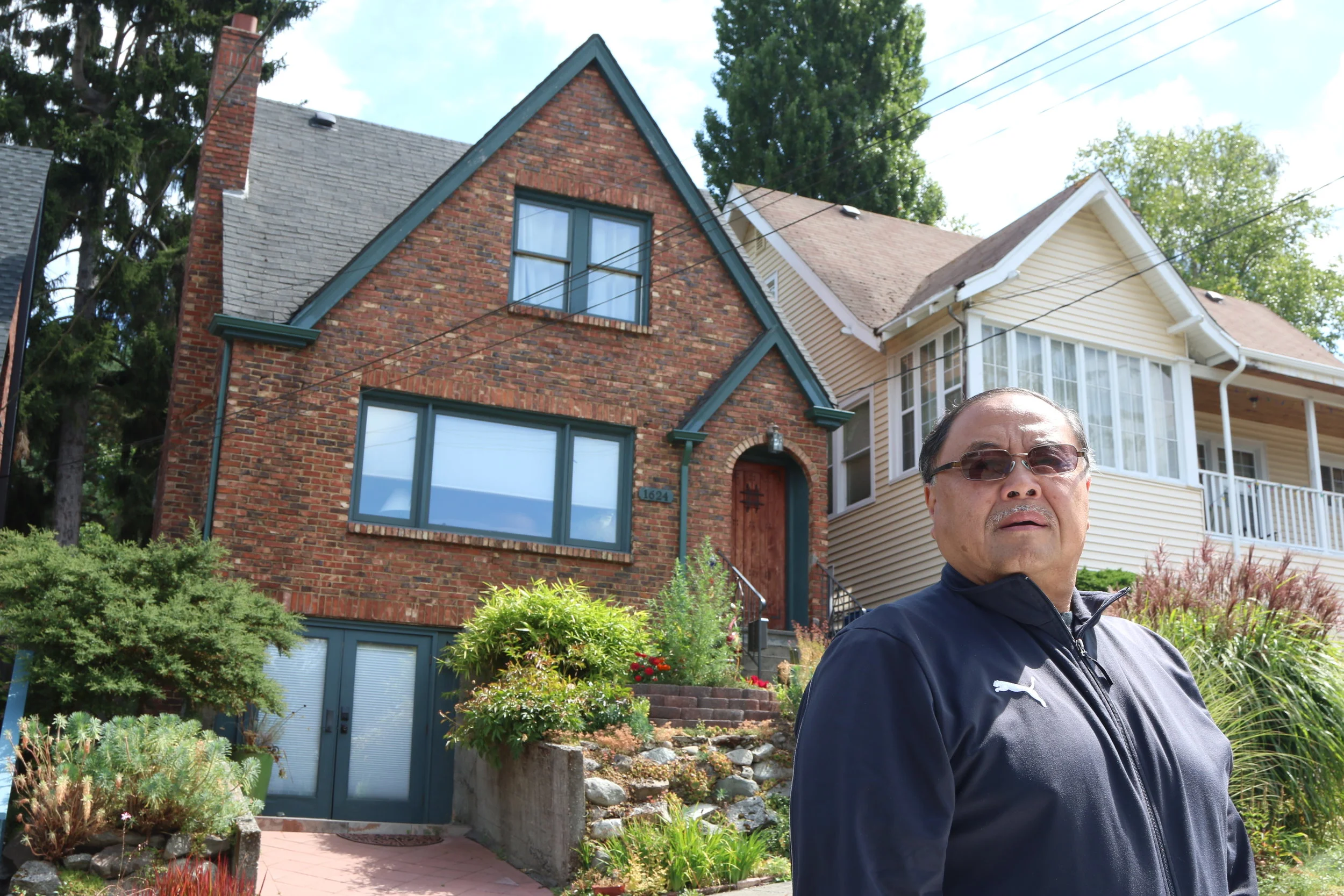Photo by Inye Wokoma
John Yasutake’s parents met at the Tule Lake Internment Camp and moved to Seattle’s Central Area in the early fifties. John grew up in the Central Area and raised his six children there.
e worked as a civil rights administrator in city government, schools, and transit.
John Yasutake
My uncle had an apartment building, right on Jackson, right next to Wonder Bread. And he had a significant number that were Japanese Americans. They came in and...this is my understanding, they came in and tried to negotiate to buy my uncle out, and he refused, so what they did was, they condemned it, gave him what they call fair settlement, turned around and sold it. Many of those families had been there a long time. My uncle owned that apartment building for a long time, uncle Eddie, and so that's an example, there must have been 30 or 40 families that had to move, got displaced.
And so, that's the impact, and now what's there? Businesses and some condos that were just priced out of the price range of the people to buy back in. Just like I moved out of Madrona, and we couldn't move back in. I mean it would cost us three or four times what our house was valued at, and we didn't even own the house, I was leasing it from my father-in-law.
But I guess the most unfortunate thing is the lack of understanding about the history and what was really the heart and soul of the Central Area. You know it's like this revisionist, "oh we move in now," no. You had everything, you had a renaissance kind of thing in the Central Area, and these were folks who came from other parts of the country to live a better life out here, a lot of them from the south, because of segregation and stuff.


